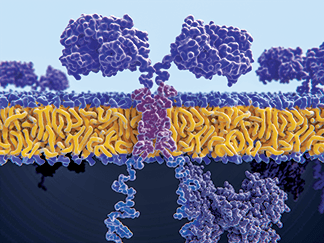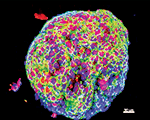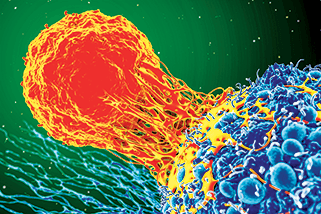Innovations at a Glance

-
Leading first-in-human administration phase 1 clinical trial of a CAR T-cell therapy for acute myeloid leukemia
-
Determined how genes belonging to the human leukocyte antigen (HLA) system can play a role in the response to treatment with immune checkpoint inhibitors
-
At the forefront of research demonstrating that local radiotherapy can contribute to immune rejection of cancer and defining the best application of ionizing radiation to stimulate the immune system

-
Selected as one of only 16 clinical study sites in the U.S. and Canada, and the only one in New York, for the I-SPY trial program designed to accelerate the development and availability of new agents for patients with breast cancer
-
Accelerating the identification of potential therapies for several cancer types through the development of patient-derived organoids
-
Established a quantitative prediction initiative, which uses sophisticated algorithms to analyze genomic data and identify patterns and trends that may predict patients’ future risk of developing cancer and other diseases, as well as potential outcomes

-
Serving as international principal investigators of a phase 3 trial comparing PD-L1/CTLA-4 blockade to chemotherapy in advanced non-small cell lung cancer
-
Initiated the first clinical trial in the United States evaluating a small molecule to treat men with progressive prostate cancer that has spread and is no longer responding to hormonal therapy
-
Created a Good Manufacturing Practices cell production lab, one of the few available in the country with the capacity to grow and manipulate T-cells

-
Engaging in investigations with the potential to develop therapeutic options for pancreatic cancer using genetically engineered mouse models, ex vivo organoid co-culture systems, and patient-derived organoid transplantation models



